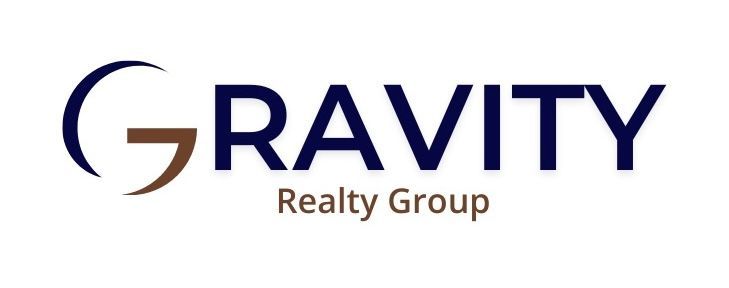Tenant Screening 101: A Property Manager’s Guide to Finding the Best Tenants

Finding the right tenants is one of the most crucial aspects of property management. The tenants you choose can significantly impact the overall success and profitability of your rental property. As a property manager, screening tenants effectively ensures a smoother leasing process, fewer issues, and long-term financial stability for both you and the property owner. At Robert LeBlanc Property Management & Real Estate, a trusted name in Calgary's residential real estate market, we understand the importance of this process. This guide will walk you through essential tenant screening steps to help you find the best tenants.
Why Is Tenant Screening Important?
Tenant screening helps minimize risk and protect your investment. Properly vetted tenants are more likely to:
- Pay rent on time
- Respect the property
- Abide by lease terms
- Stay for longer periods
In contrast, failing to conduct thorough tenant screening can lead to costly evictions, property damage, and vacancy losses. Effective tenant screening is about balancing the need for occupancy with finding responsible, trustworthy tenants who will take care of your property.
1. Develop Clear Tenant Criteria
Before you begin the screening process, establish clear criteria for what makes an ideal tenant. This helps ensure fairness, consistency, and legal compliance. Your criteria should include:
- Income requirements: A tenant’s monthly income should generally be three times the rent amount to ensure they can afford the lease.
- Credit score: A good credit score reflects financial responsibility. Establish a minimum credit score requirement that aligns with market standards.
- Rental history: Check for any history of evictions, frequent moves, or conflicts with past landlords.
- Employment verification: Confirm that the tenant has stable employment.
- Background check: Look for any criminal history that may pose a risk to your property or other tenants.
Having predefined criteria makes it easier to objectively assess applications, reducing the risk of biased decisions and helping you identify the best tenants.
2. Pre-Screen Potential Tenants
Pre-screening can save you time by filtering out tenants who don't meet your basic criteria before you dive into more in-depth checks. When potential tenants inquire about the property, ask a few preliminary questions, such as:
- How soon are you looking to move?
- How many people will be living in the unit?
- Do you have pets?
- Are you able to provide proof of income?
- Have you ever been evicted or broken a lease?
These questions give you a quick overview of whether the tenant is likely to meet your criteria without wasting time on further screening for those who don’t.
3. Verify Employment and Income
A tenant’s ability to pay rent on time is essential. Verifying their employment status and income is a critical part of tenant screening. Here’s how:
- Request pay stubs: Ask for at least two recent pay stubs or an employment letter to confirm the tenant’s current income.
- Contact their employer: Call the employer to verify the tenant’s job stability and length of employment. Be polite and respectful during the verification process, ensuring you're not asking personal or irrelevant questions.
For self-employed applicants, you may need to request bank statements, tax returns, or profit and loss statements to verify their income.
4. Conduct a Thorough Credit Check
A credit check provides valuable insight into a tenant’s financial history, helping you assess their ability to manage finances responsibly. When reviewing a credit report, look for:
- Credit score: A higher credit score generally indicates better financial health.
- Debt load: Evaluate how much debt the tenant carries and whether they may struggle to meet rental payments.
- Payment history: Check for any past-due accounts, late payments, or unpaid bills, which may be a red flag for future rent payment issues.
Be mindful of interpreting credit reports fairly. While poor credit may be a concern, factors like medical bills or temporary financial hardships should be considered in context.
5. Check Rental History
A tenant’s rental history can be one of the best indicators of how they will treat your property. Contact previous landlords to verify:
- Rental payment history: Did the tenant pay rent on time and in full?
- Property upkeep: Did the tenant maintain the property in good condition?
- Rule compliance: Did the tenant follow the lease terms, such as no noise complaints or issues with neighbors?
- Move-out condition: Was the property left in good shape upon move-out?
Be sure to ask for details and confirm whether the previous landlord would rent to the tenant again. Keep in mind that some landlords may be reluctant to provide negative feedback, so it’s important to ask clear and specific questions.
6. Run a Criminal Background Check
Safety is a priority for both you and your other tenants, so conducting a criminal background check is an essential step.
Depending on local laws and regulations, this check may include searching for:
- Felony convictions
- Misdemeanors
- Sex offender status
However, it's important to follow the law when using criminal records in tenant screening. In Canada, for example, it's illegal to discriminate against tenants based solely on a past conviction. The key is to focus on any potential risks posed by the tenant’s criminal history and weigh that against other factors.
7. Interview the Tenant
While many aspects of tenant screening involve reviewing documents and reports, meeting the tenant in person (or virtually) provides an additional layer of assurance. A brief interview allows you to assess the tenant’s communication skills, attitude, and level of responsibility.
During the interview, ask questions like:
- Why are you moving from your current place?
- How long do you plan to stay at the property?
- How do you handle property maintenance and repairs?
Their answers can offer insight into their reliability and intentions for your property.
8. Avoid Discrimination
Throughout the screening process, it's essential to remain compliant with Fair Housing laws. In Canada, this means avoiding discrimination based on race, religion, gender, disability, family status, or other protected characteristics. Ensure your screening criteria focus only on relevant factors such as financial stability, rental history, and creditworthiness.
9. Make the Final Decision
After gathering all the necessary information, it’s time to make a final decision. Compare the applications you’ve received based on the criteria you established and choose the tenant who is the best fit for your property. Ensure your decision is based on objective data, such as income, rental history, and credit score, rather than personal preferences or biases.
Once you’ve chosen a tenant, it’s important to draft a thorough lease agreement that outlines all terms and conditions, protecting both parties.
Conclusion
Effective tenant screening is the foundation of successful property management. By establishing clear criteria, verifying financial and rental histories, and maintaining legal compliance, you can find tenants who will respect your property, pay rent on time, and stay long-term.
At Robert LeBlanc Property Management & Real Estate, we are dedicated to helping property owners in Calgary manage their residential properties efficiently and effectively. If you’re looking for help with tenant screening or any other property management service, our experienced team is here to guide you every step of the way. Let us help you protect your investment and ensure a smooth, successful rental experience!












